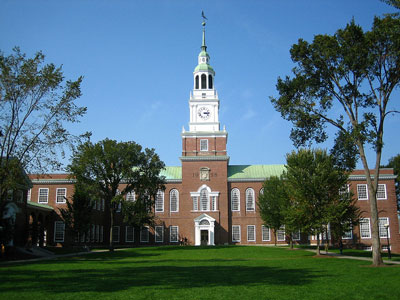
Today, Business Insider’s sad junior writer covering the Dartmouth beat stumbled across another gem:
In short, a group of disgruntled Dartmouth College employees are “blowing the whistle” on what they allege to be a compromised College Endowment investment process. In particular, they released an open letter to the New Hampshire Attorney General detailing their accusations—conflicts of interest arising from the presence of a number of asset managers on the Board of Trustees, and a disproportionate allocation of endowment money to their funds. The implication that board members are funneling assets into their stewardship – is by no means trivial.
In the interest of reporting the news and providing meaningful commentary, I’d like to point out that this represents yet another group of disgruntled folks who blame private equity for job loss: “unsustainable [endowment] spending,” facilitated by outsized private equity returns, were used “to justify layoffs.”
Now that that’s out of the way—is this actually a bad thing?
I don’t mean the layoffs, so bear with me for a minute. The whistleblowers focus their attack on the relationship between Trustee giving, and endowment allocation—i.e. the more you give to the College, the more the College lets you recoup via management fees on endowment funds allocations. And for some of the ten named trustees, there might be a case to be made.
But for most of the names, I would argue that just because a portion of our Alumni happen to be highly regarded alternative asset managers, does not mean that the College should shy away from their funds. To the contrary, I think the College should embrace them. If you look at causation from the other side, the College is actually maximizing its returns. In theory, it goes like this:
1) Among top managers, find the Dartmouth alums.
2) Invest with them, and eventually realize your gains (we hope).
3) Receive gifts from these alumni, and after running through these steps a couple of times, make him or her a Trustee.
The benefit to the College is embedded in the very fees the whistleblowers deride. Assuming that an alum will give ‘X’% of annual income to his Alma Mater, the resulting increased fees paid to him or her at the very least bump up in proportion to the management fee structure. It usually goes like this:
Fund sponsor’s annual take = (2% of total invested assets)+(20% of fund gains)
For the sake of simplicity, assume that this represents the Trustee’s income for the year. If you break out Dartmouth’s investment, and multiply it by the Trustee’s rate of giving to the College (which, as a Trustee, is probably pretty high):
(X%)*[(2% of Dartmouth’s stake)+(20% of Dartmouth’s gains)]
Admittedly, this is a pretty diluted kickback, but it nonetheless represents more flowing into the College’s coffers. Plus, we’re dealing with some pretty big numbers here, so maybe it’s really worth doing. Assuming a $5mm investment appreciating 15% in the first year (before fees – which is not entirely unreasonable), with a Trustee who gives at a rate of 5%, the College ends up with:
(.05)*[(.02*5,750,000)+(.2*750,000)] = $13,250 in extra cash.
Scale this up across the eight accused Trustees who manage funds, and the multiple concurrent funds that most of them offer, and you’re looking at a professor’s salary. Factor in the likelihood that Alums with whom the College invests are more likely to give at higher rates than others, and it’s even better.
None of this is to say that shenanigans necessarily did not occur, and that the College deviated from whatever prudent, disciplined process it has in place. But all things equal, we should be investing with alums, and to maximize these kickback gains, we should probably make them Trustees. Or maybe the Trustees steering cash into their own funds rationalize themselves in exactly these terms (doubtful).
–Sam A. Ticker

Be the first to comment on "Blowing the Whistle"